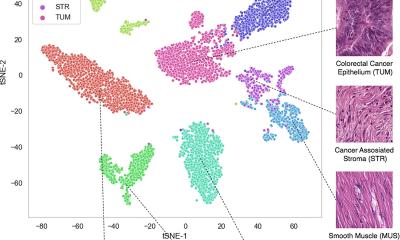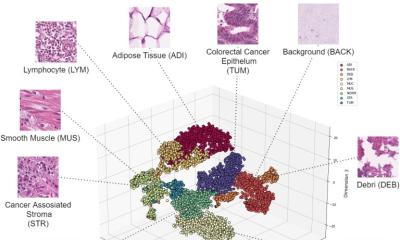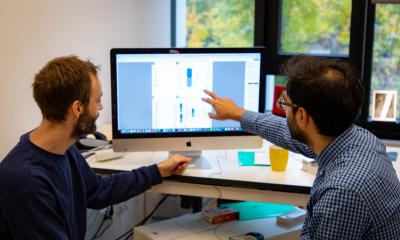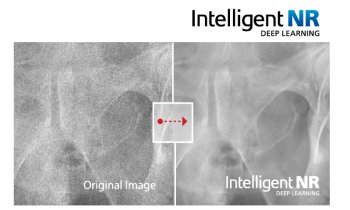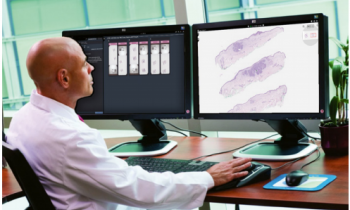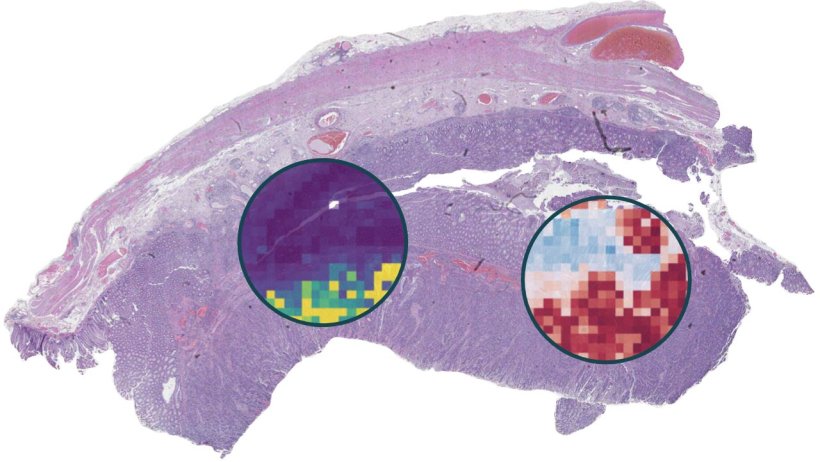
© Sophia J. Wagner | Helmholtz Munich
News • Biomarker-based predictions
AI drives precision oncology for colorectal cancer
Colorectal cancer (CRC) ranks second in leading causes of cancer-related deaths globally, according to the WHO. For the first time, researchers from Helmholtz Munich and the University of Technology Dresden (TU Dresden) show that artificial intelligence (AI)-based predictions can deliver comparable results to clinical tests on biopsies of patients with CRC.
AI predictions can speed up the analysis of tissue samples, resulting in faster treatment decisions. This novel model for biomarker detection represents a significant stride towards the realization of precision therapy approaches in the field of oncology. The method is now published in Cancer Cell.
A team of scientists around Dr. Tingying Peng from Helmholtz Munich and Prof. Jakob N. Kather from TU Dresden show that AI can predict specific biomarkers in stained tissue samples of patients with CRC. They used so-called transformer networks, a recent deep learning (DL) approach, to identify patterns and support diagnostic decisions in cancer management. The new method significantly improves previous approaches for biomarker detection.
The generalization to biopsy tissue increases the algorithm’s benefit for the patient when ultimately implemented in clinical routine
Sophia J. Wagner
The team of researchers developed software that uses the new technology of transformer neural networks throughout the analysis process. They show that their approach substantially improves the performance, generalizability, data efficiency, and interpretability by evaluating it on a large multicentric cohort of over 13,000 patients from 16 cohorts from seven countries (Australia, China, Germany, Israel, Netherlands, UK, USA), part of which was contributed by researchers at the German Cancer Research Center (DKFZ) Heidelberg and the network of the National Centers for Tumor Diseases (NCT). The algorithm trained on the large multicentric cohort achieves a very high sensitivity on resection tissue samples obtained during surgery. Strikingly, even though their model has only been trained on tissue samples from resections, the results can reach also a high performance on biopsy tissue obtained during colonoscopy. Sophia J. Wagner, the first author of the study, emphasizes that “the generalization to biopsy tissue increases the algorithm’s benefit for the patient when ultimately implemented in clinical routine”.
Because of its high sensitivity on biopsy tissue, the algorithm could serve as a pre-screening tool followed by affirmative testing for cases that received a positive result during AI testing. Applying AI-based biomarker prediction could reduce the testing burden and therefore speed up the step between taking the biopsy and the molecular determination of the genetic risk status, thus enabling an earlier patient treatment with immunotherapy if indicated.
Source: Helmholtz Munich
03.09.2023



